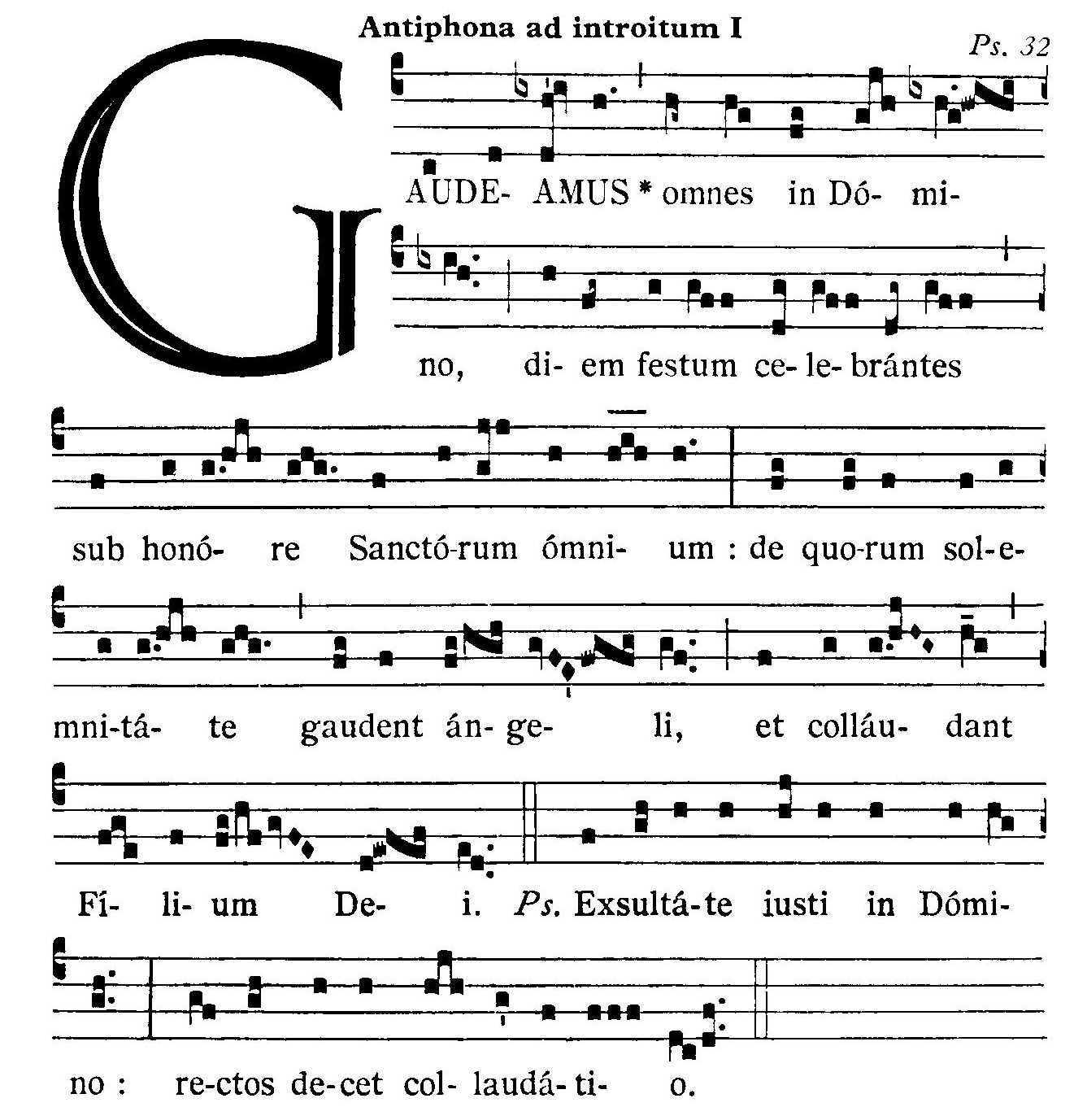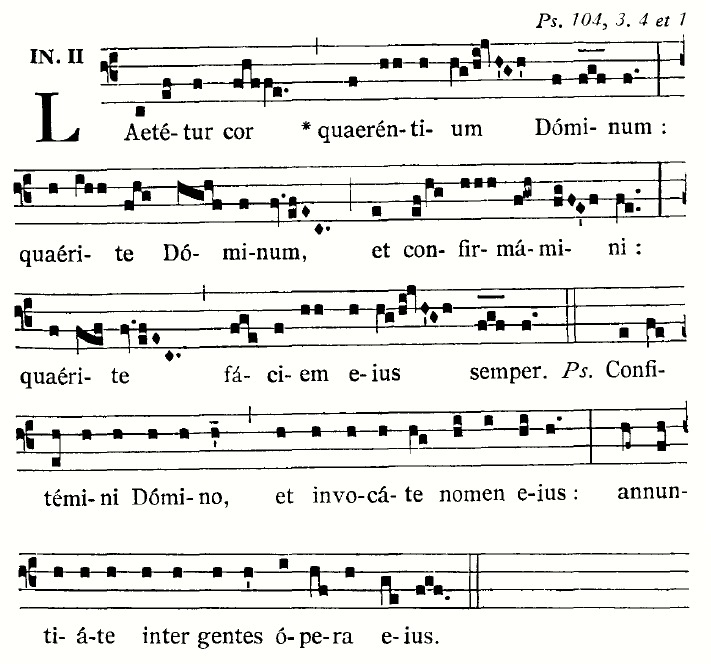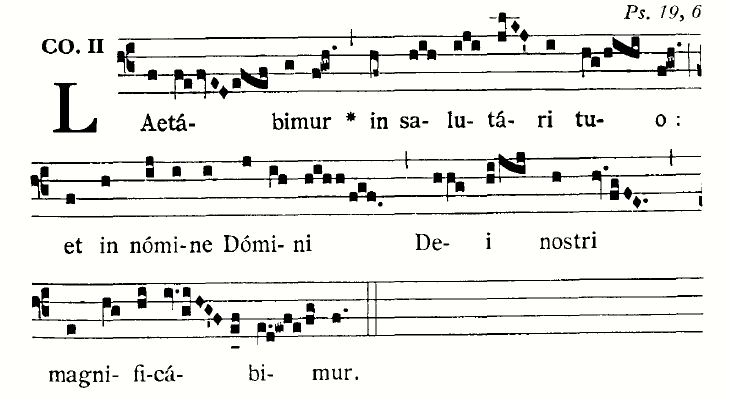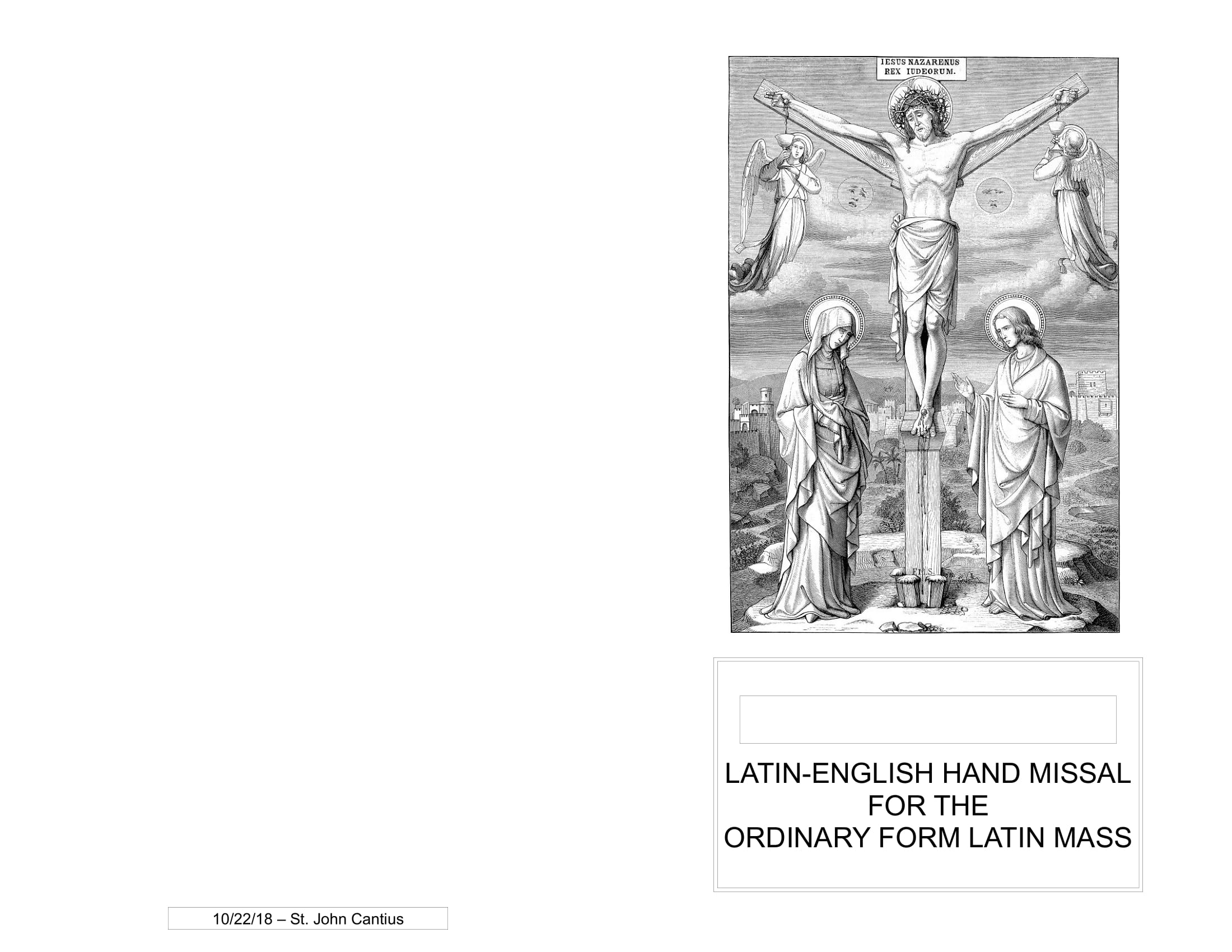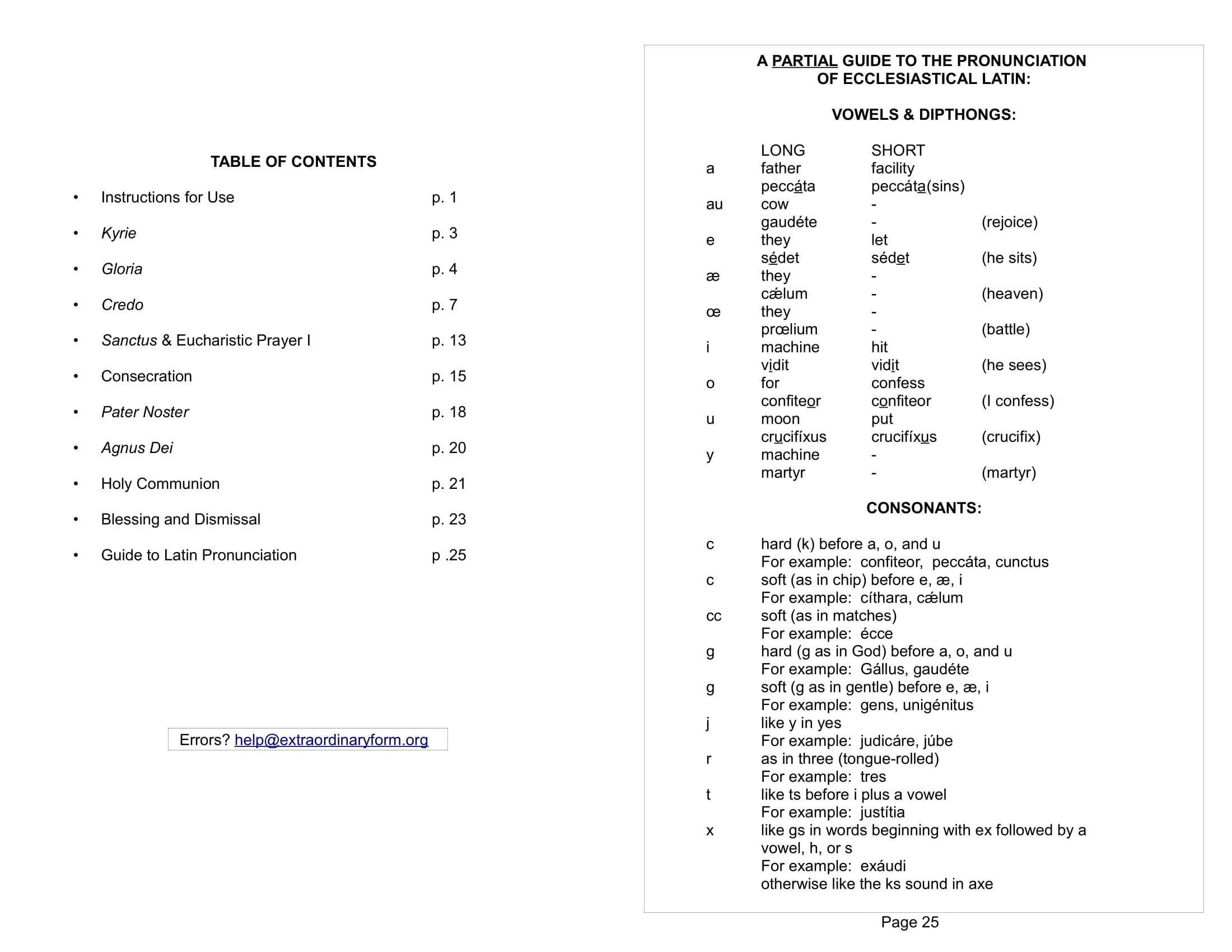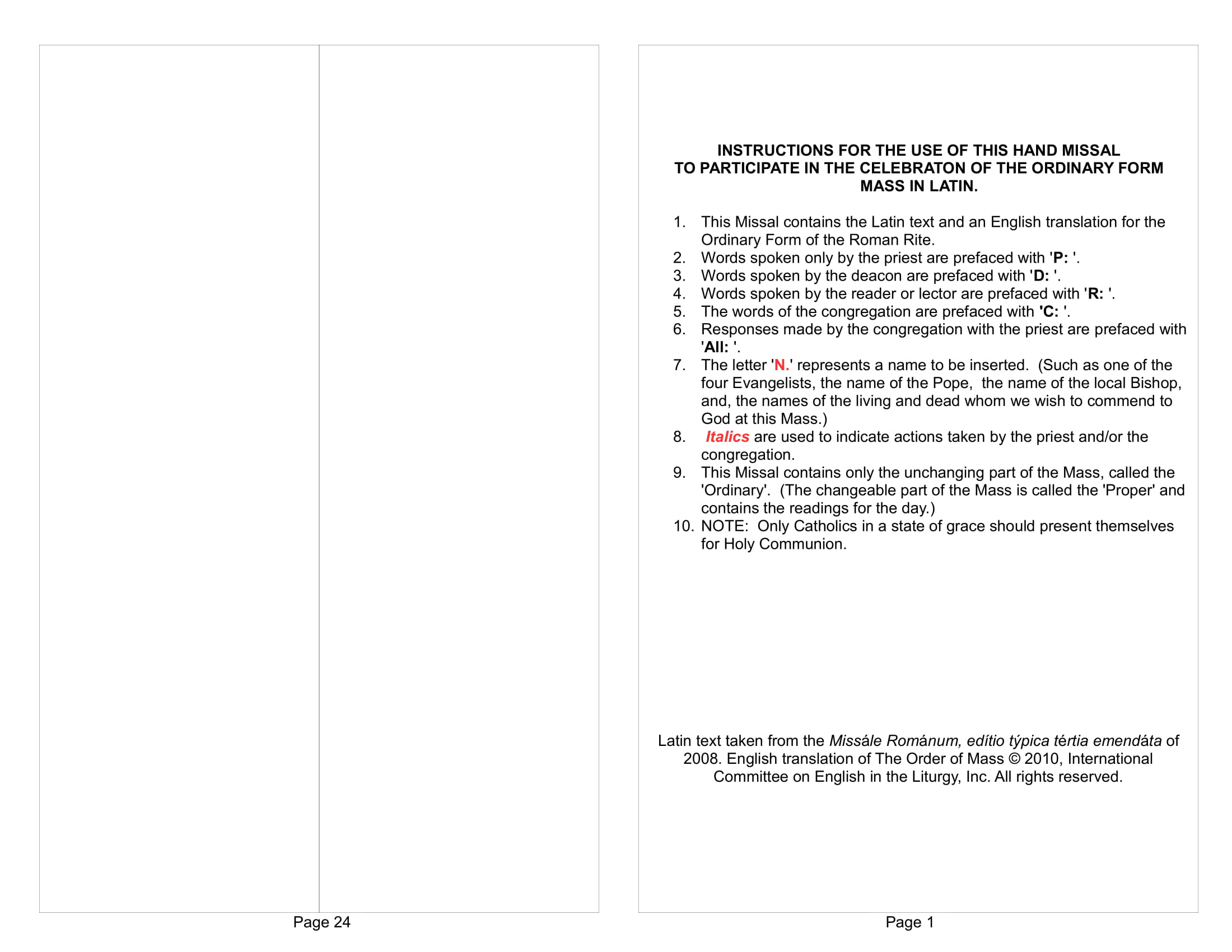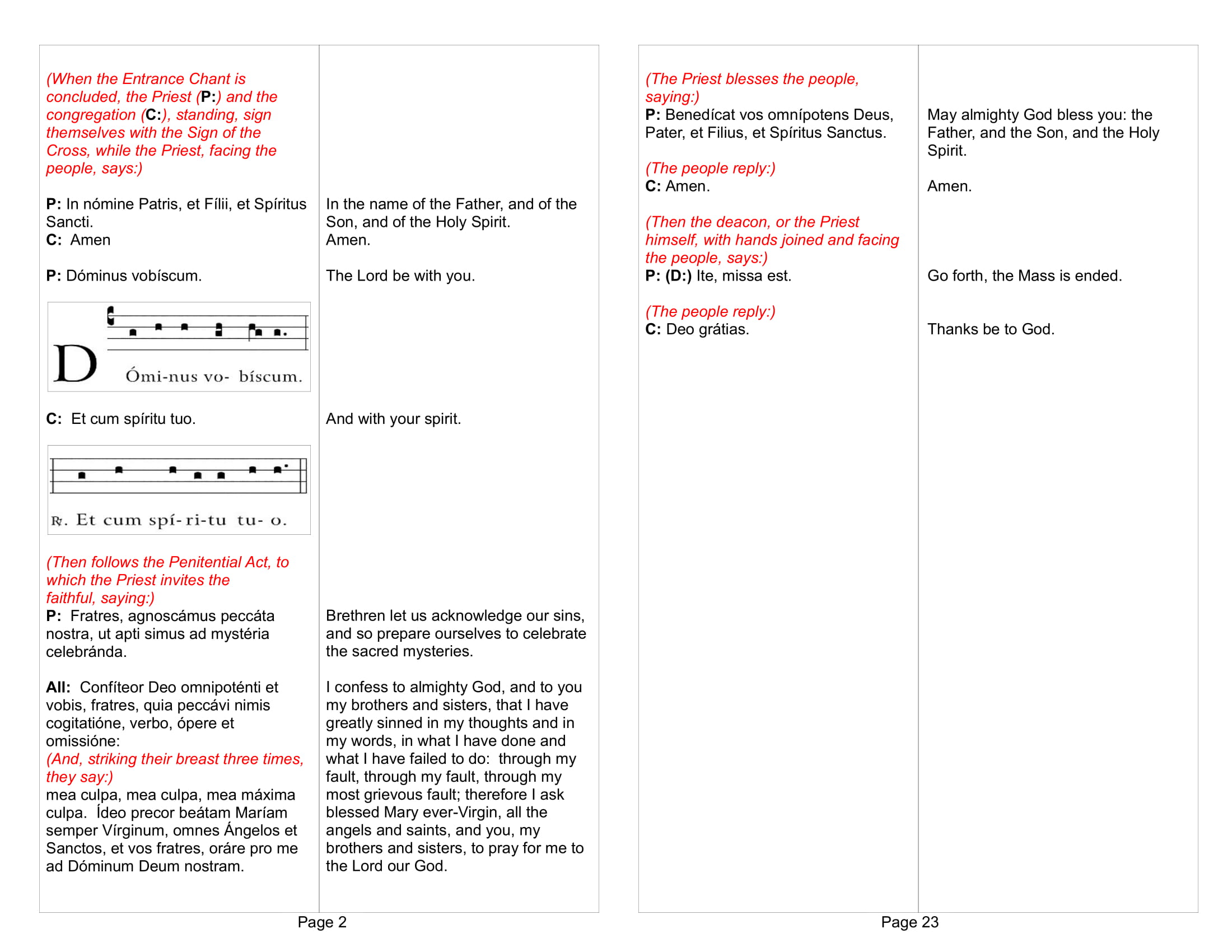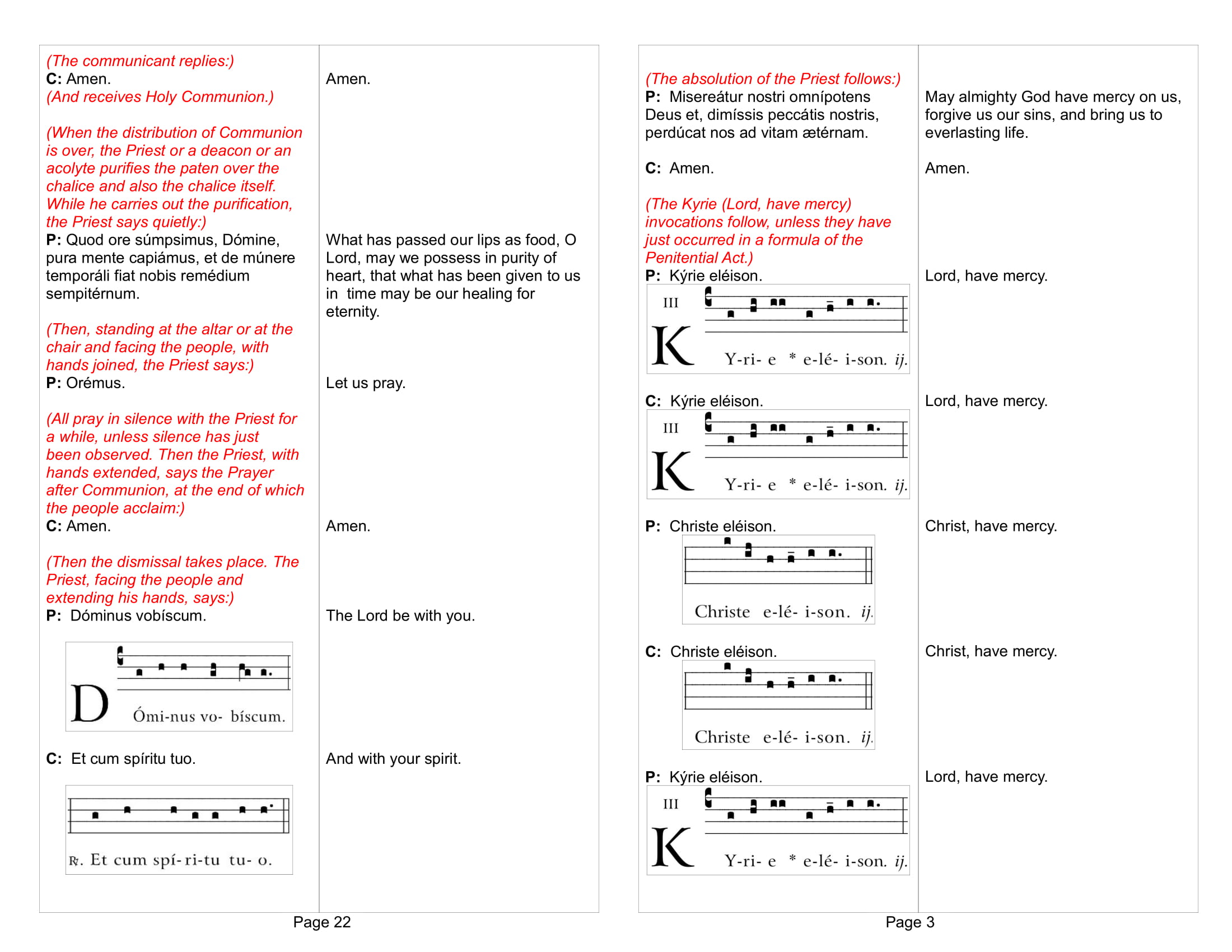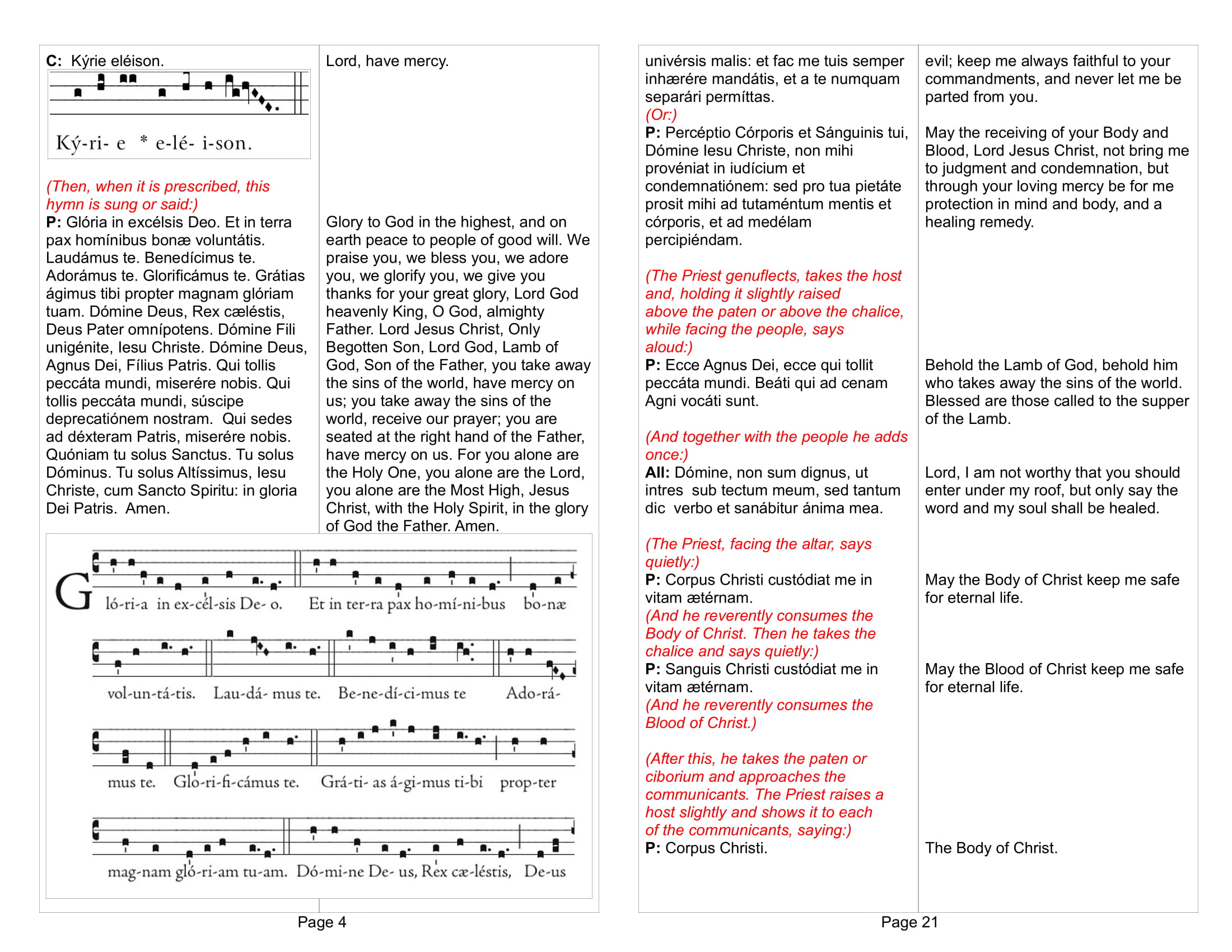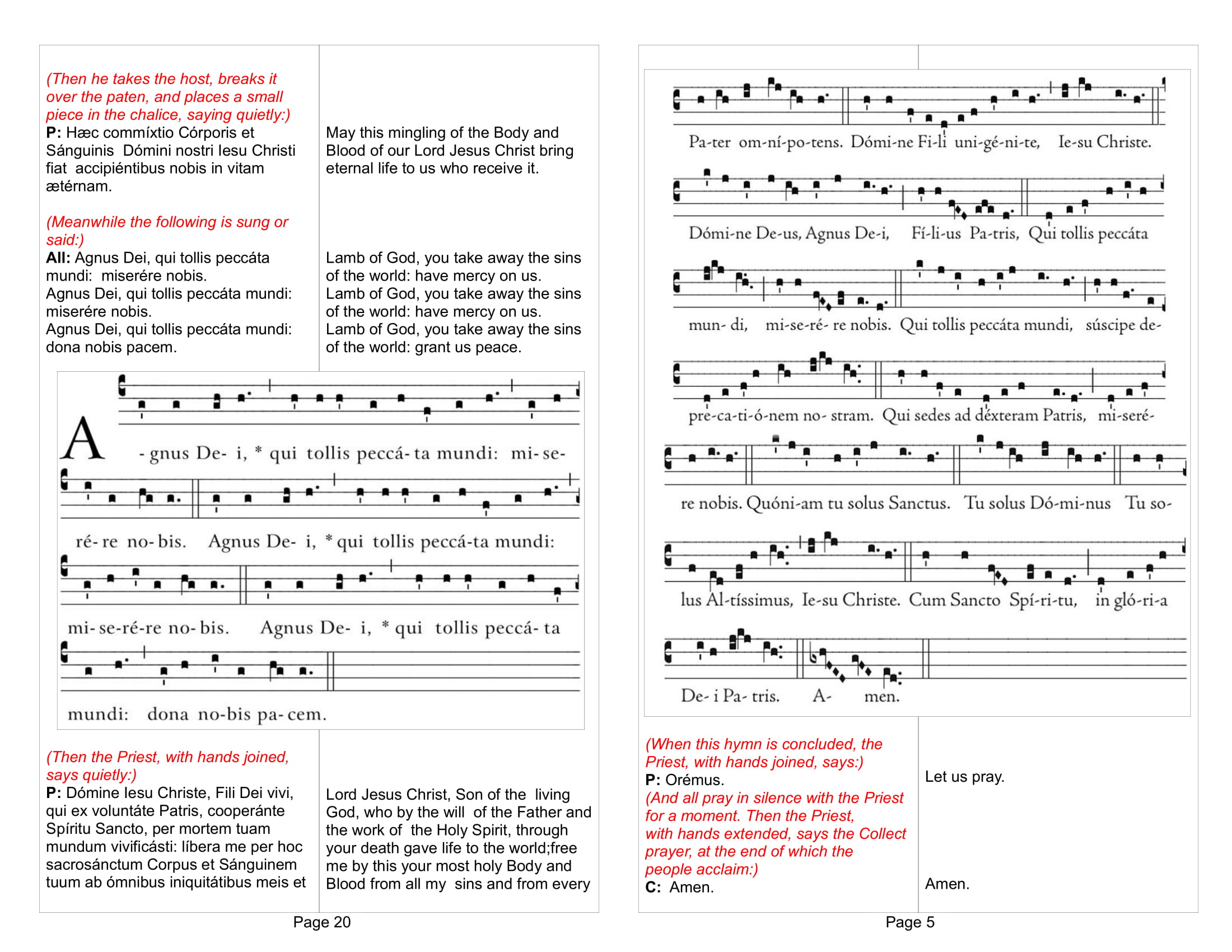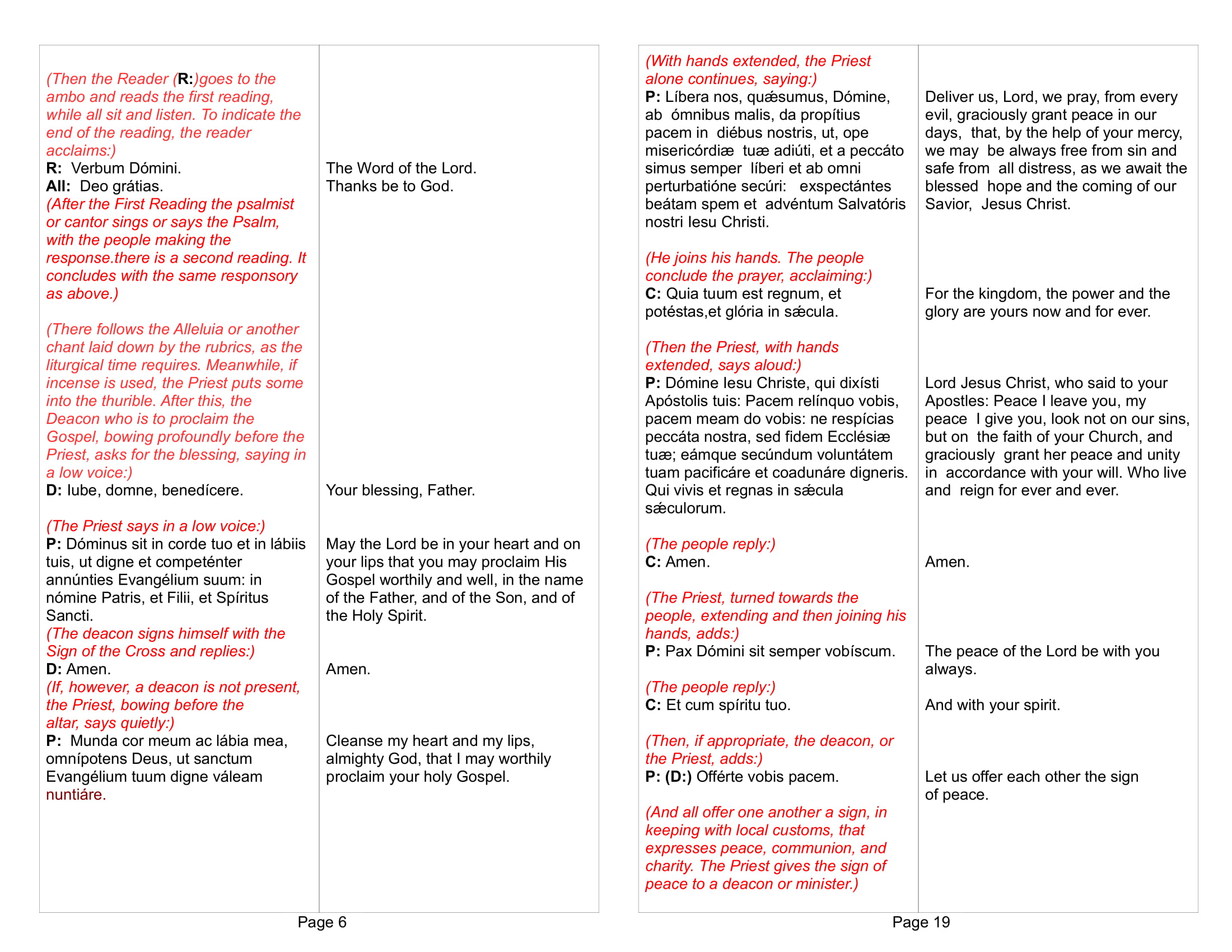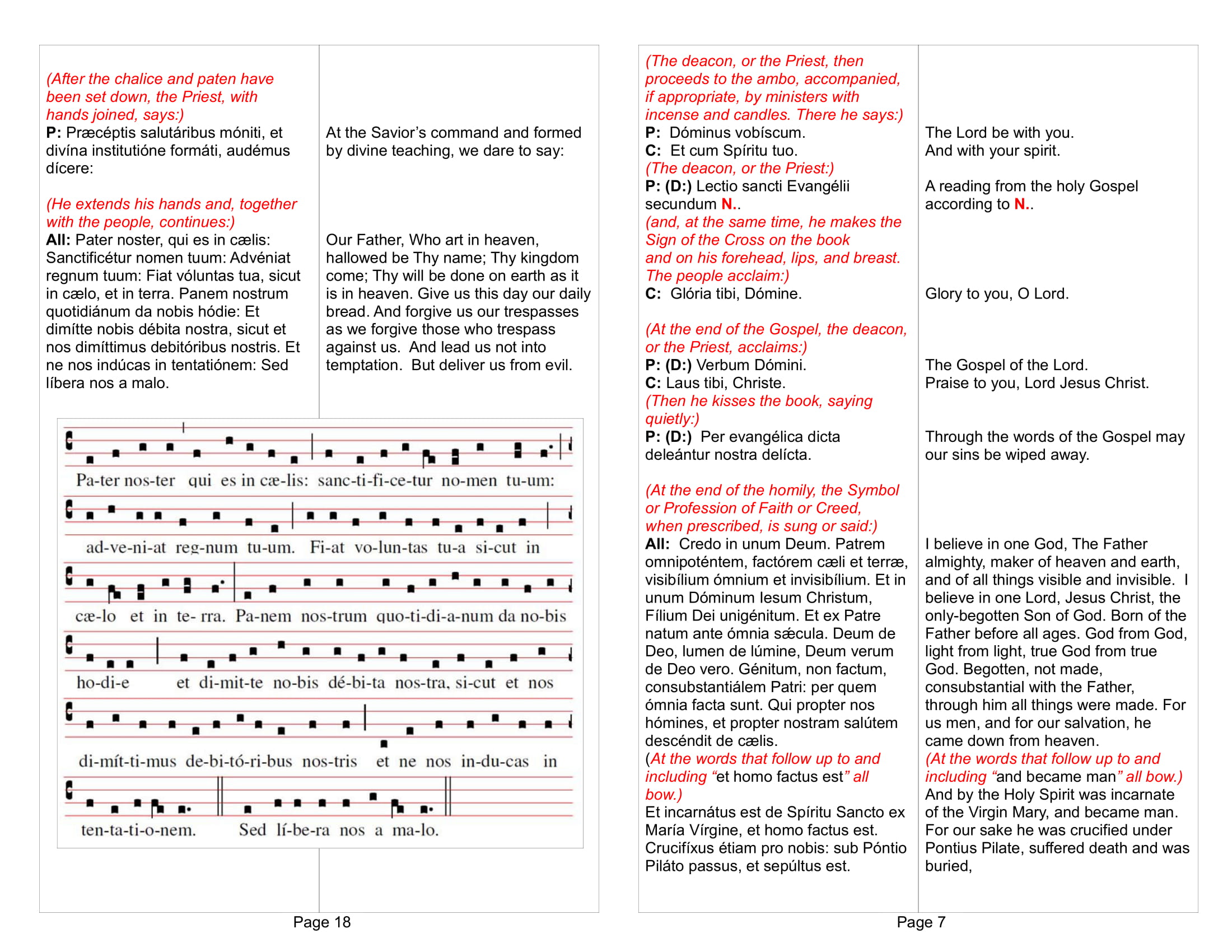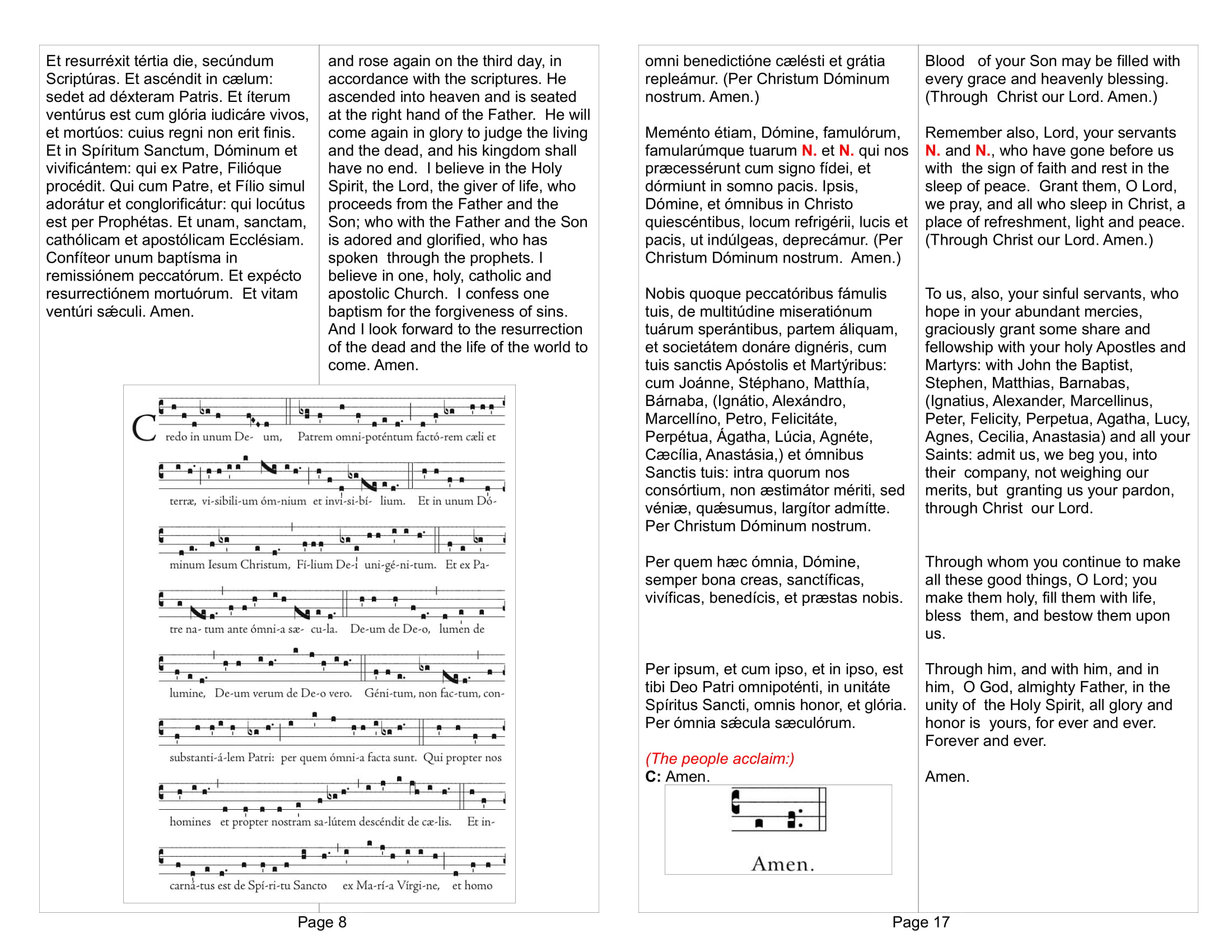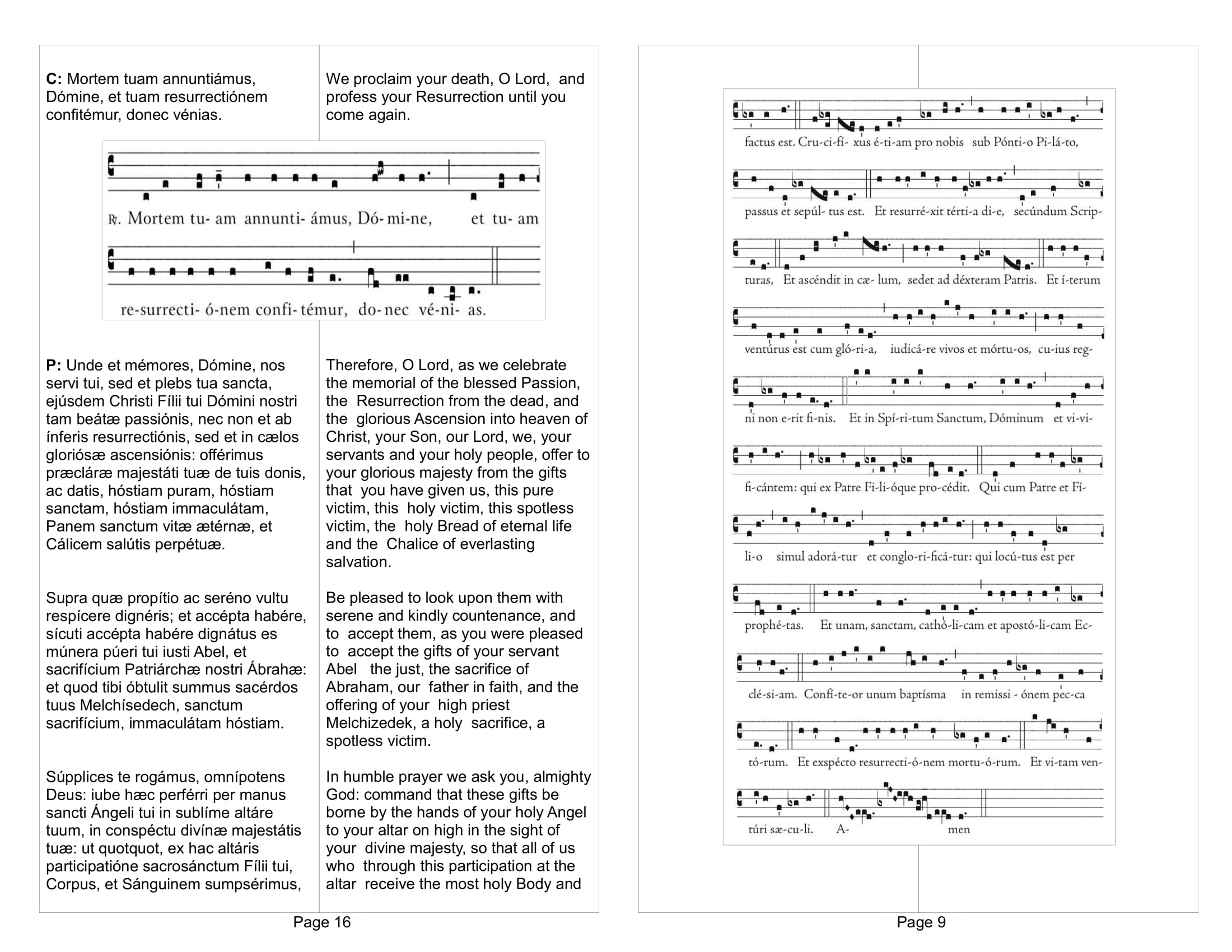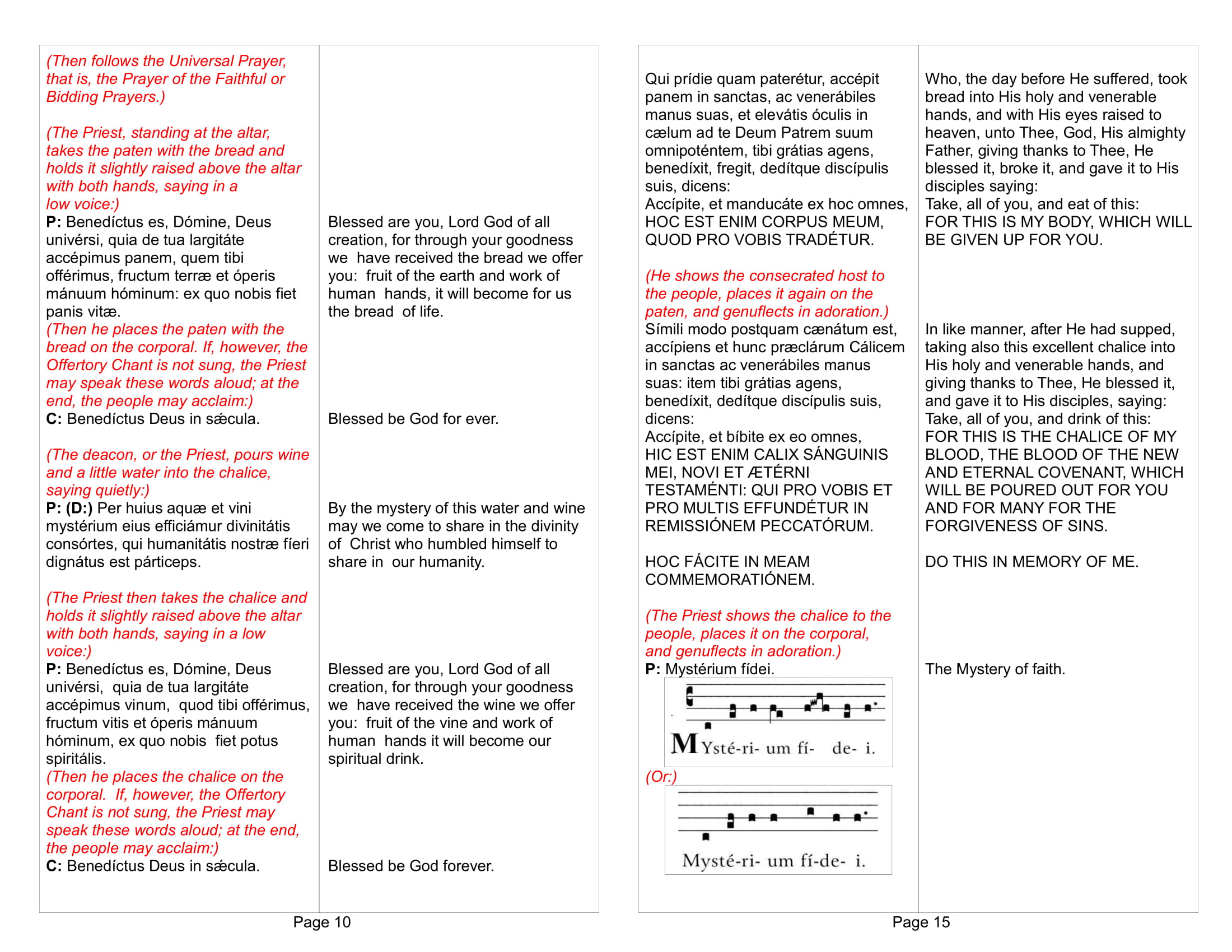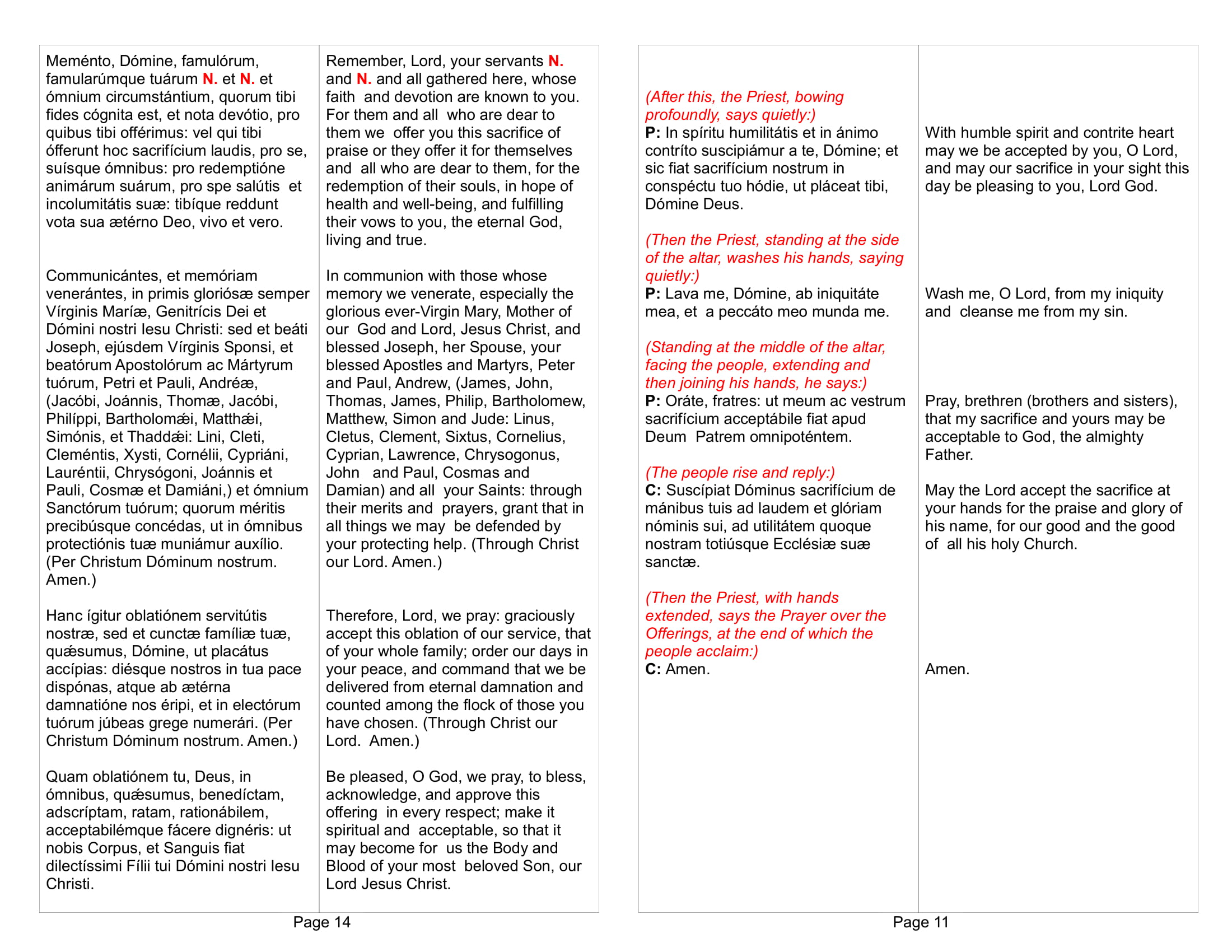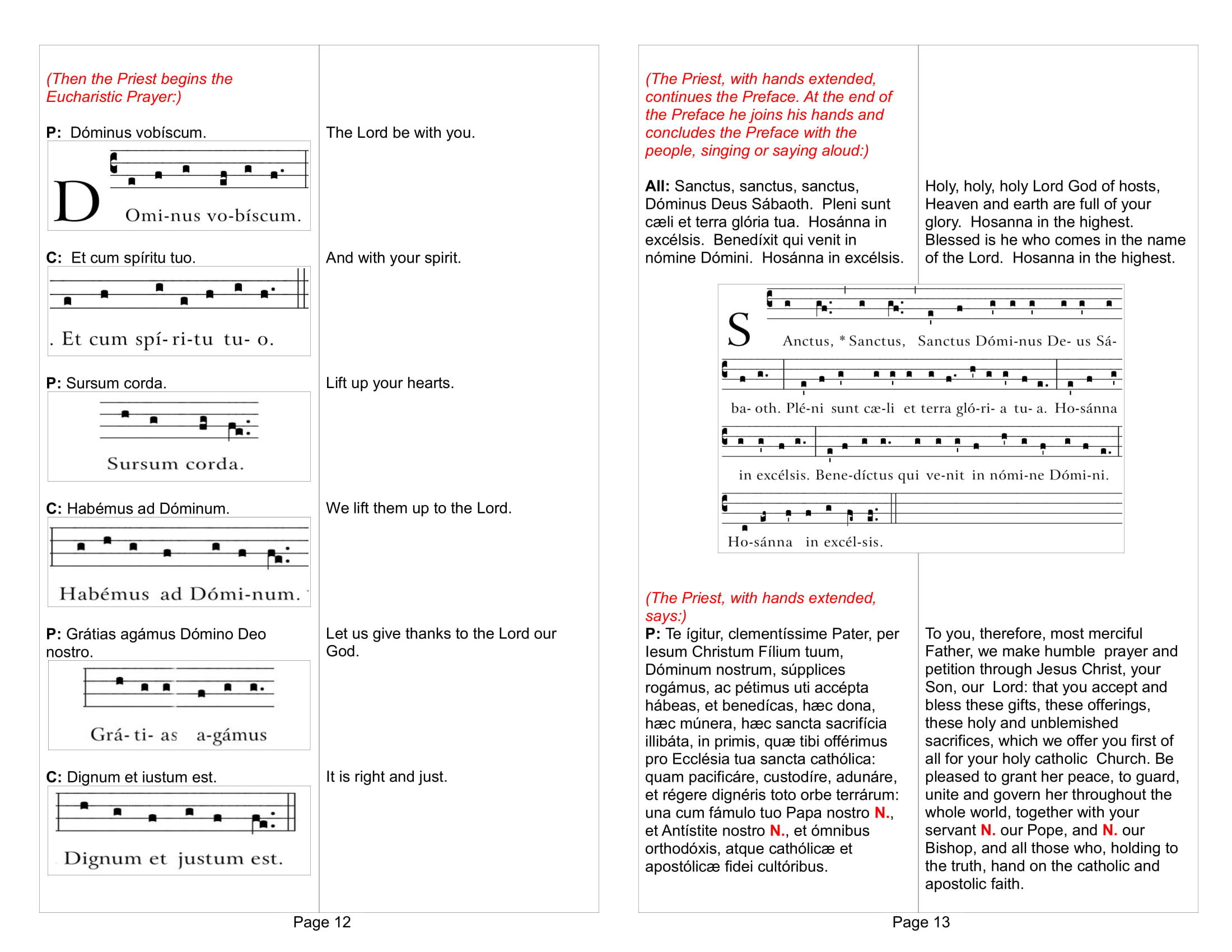Sollemnitas
Ant. ad introitum
Gaudeámus omnes in Dómino,
diem festum celebrántes
sub honóre Sanctórum ómnium,
de quorum sollemnitáte gaudent Angeli,
et colláudant Fílium Dei.
Dicitur Glória in excélsis.
Collecta
Omnípotens sempitérne Deus,
qui nos ómnium Sanctórum tuórum mérita
sub una tribuísti celebritáte venerári, quǽsumus,
ut desiderátam nobis tuæ propitiatiónis abundántiam,
multiplicátis intercessóribus, largiáris.
Per Dóminum.
Dicitur Credo.
Super oblata
Grata tibi sint, Dómine, múnera,
quæ pro cunctórum offérimus honóre Sanctórum,
et concéde,
ut, quos iam crédimus de sua immortalitáte secúros,
sentiámus de nostra salúte sollícitos.
Per Christum.
Præfatio: De gloria matris nostræ Ierusalem.
Ant. ad communionem Mt 5, 8-10
Beáti mundo corde, quóniam ipsi Deum vidébunt;
beáti pacífici, quóniam fílii Dei vocabúntur;
beáti qui persecutiónem patiúntur propter iustítiam,
quóniam ipsórum est regnum cælórum.
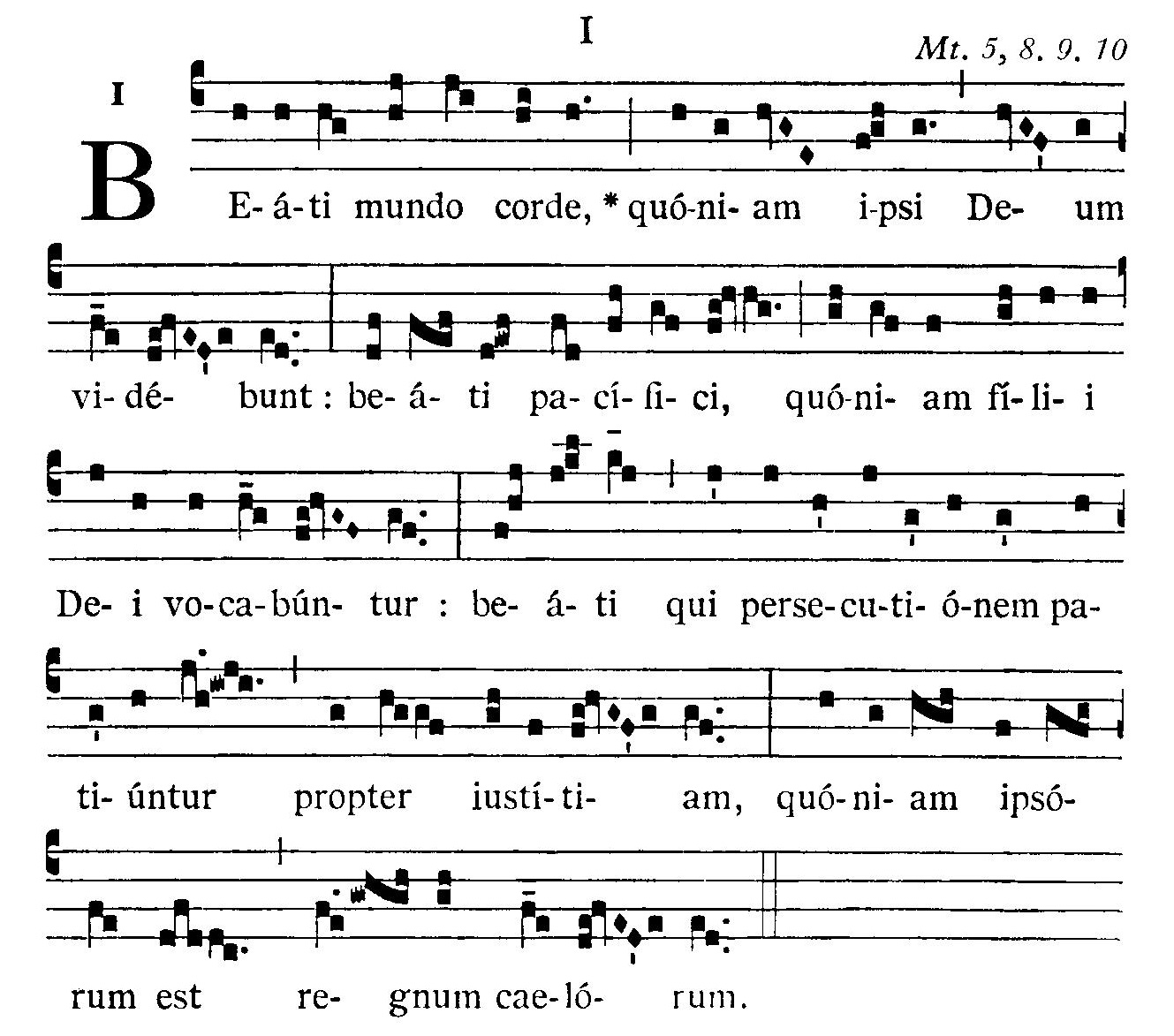
Post communionem
Mirábilem te, Deus,
et unum Sanctum in ómnibus Sanctis tuis adorántes,
tuam grátiam implorámus,
qua, sanctificatiónem
in tui amóris plenitúdine consummántes,
ex hac mensa peregrinántium
ad cæléstis pátriæ convívium transeámus.
Per Christum.
Adhiberi potest formula benedictionis sollemnis.
© Copyright – Libreria Editrice Vaticana
Messalino in PDF con letture in lingua italiana (da stampare su fogli A3 fronte/retro)
Missalette in PDF with readings in English (to be printed on A3 sheets, front/back)

